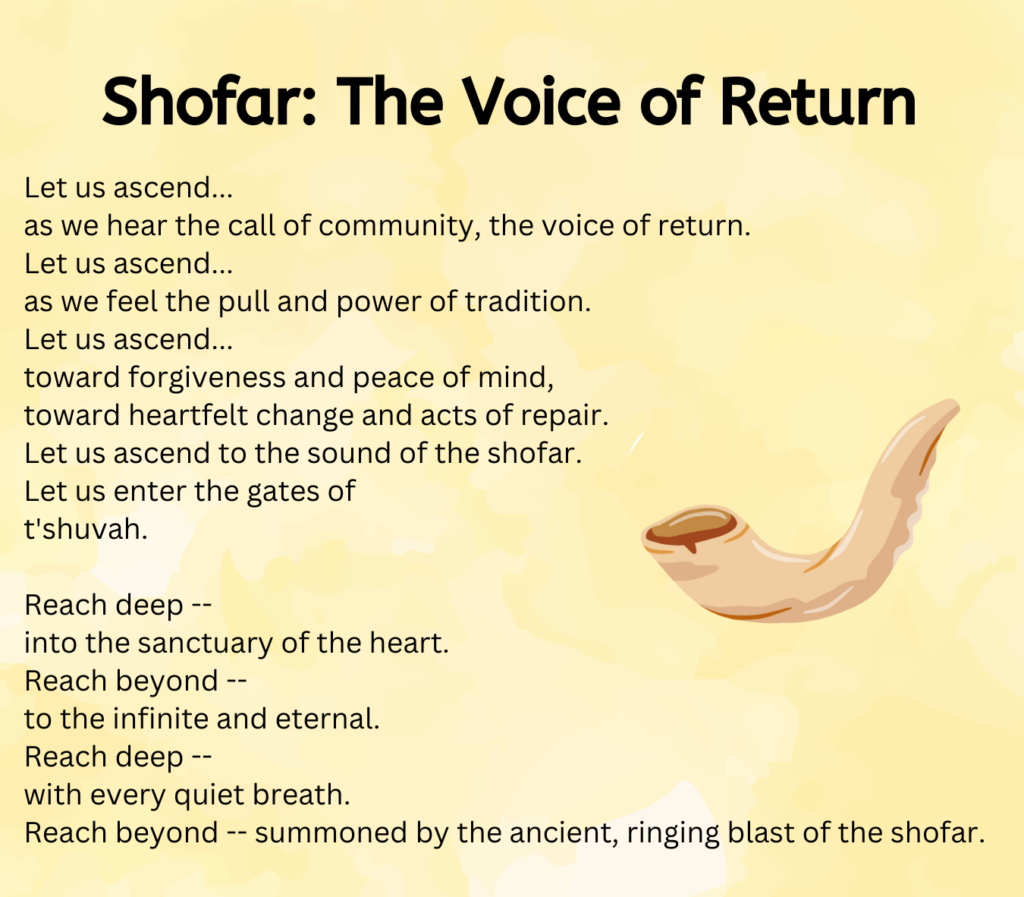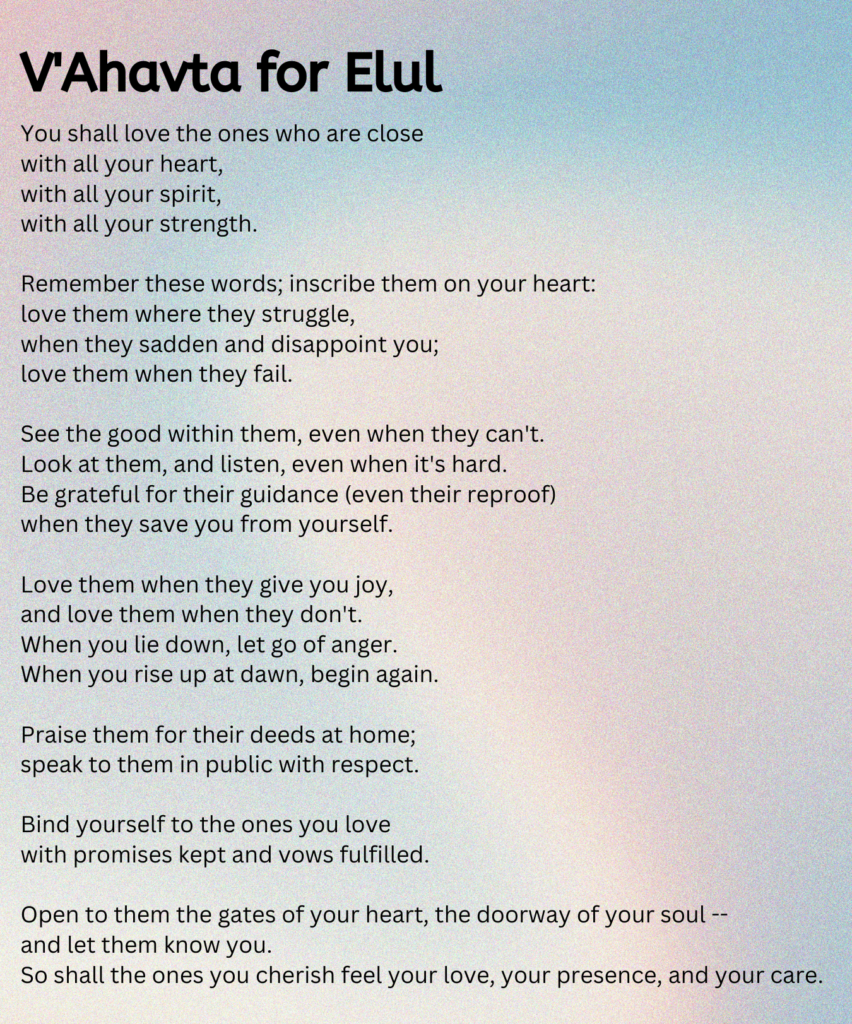The Jewish month of Elul marks a period of soul-searching that leads up to the High Holidays.
Jewish tradition points to the name of the month as symbolically appropriate — the letters of Elul (aleph, lamed, vav, lamed) –form an acronym for the words in the verse Ani le-dodi ve-dodi li –“I am my beloved’s and my beloved is mine” (Song of Songs 6:3). Some sages believe that the “beloved” refers to God, and describes the loving, close relationship between God and Israel.
Elul helps us to approach the Yamim Noraim, the Days of Awe, thoughtfully and intentionally.
Learn more at ReformJudaism.org Learn more at MyJewishLearning
The Sound of the Shofar
Traditionally, the shofar is blown each morning (except on Shabbat) from the first day of Elul until the day before Rosh Hashanah. Its sound is intended to kick-start the spiritual accounting that happens throughout the month. Blow the Shofar yourself with these apps: Apple, Google Play

Elul is a time for introspection, here are some ideas to start your journey:
It is customary to read and reflect daily on Psalm 27. Rabbi Alan Cooper writes: The psalm maps out the pathway to genuine teshuvah for us; by reciting and understanding it, we are able to travel that path…” (more)
Gratitude, by Oliver Sacks
“My predominant feeling is one of gratitude. I have loved and been loved. I have been given much and I have given something in return.”
This Is Real and You Are Completely Unprepared, by Rabbi Alan Lew
There are times in life when we are caught utterly unprepared: a death in the family, the end of a relationship, a health crisis. These are the times when the solid ground we thought we stood on disappears beneath our feet, leaving us reeling and heartbroken, as we stumble back to our faith.

During the month of Elul we observe Selichot:
Selichot (which literally means “forgiveness”) are penitential prayers recited before and during the High Holidays and other fast days throughout the year.
Like other activities during Elul, they offer an opportunity for personal reflection and to seek forgiveness from those we may have wronged during the year just ending.
Learn more at: ReformJudaism.org Learn more at: MyJewishLearning